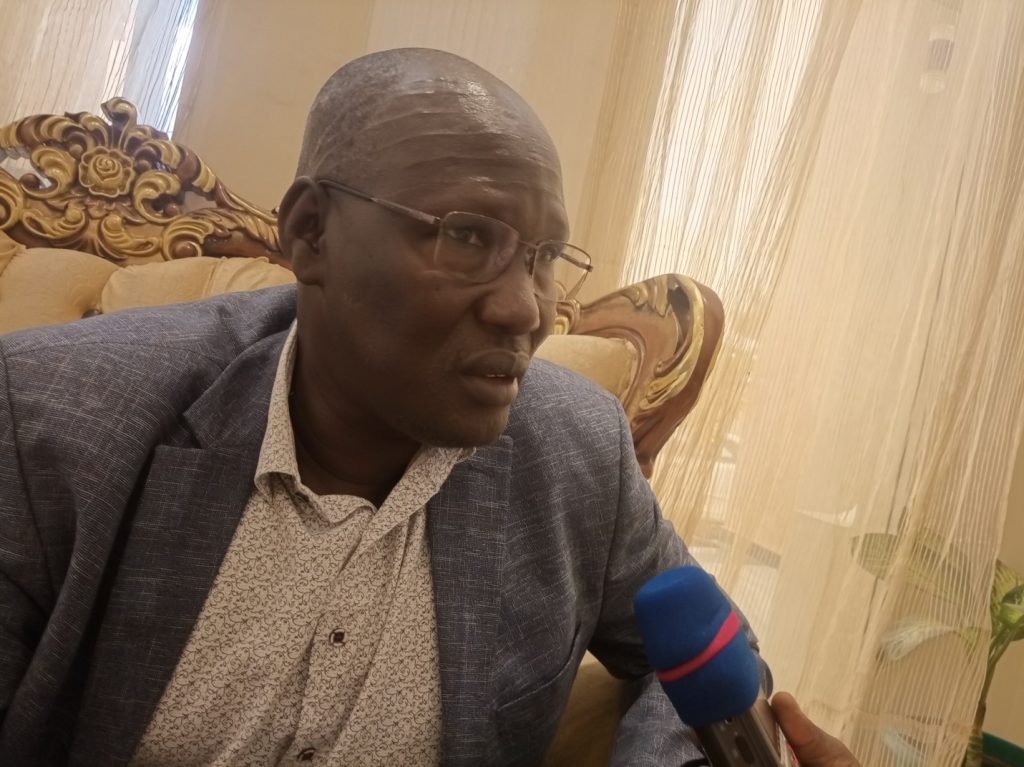
By Matia Samuel Timatio
The Dialogue and Research Institute (DRI) said there’s not much consultation and very little has been done by the Technical Committee on the establishment of Commission on Truth, Reconciliation and Healing.
Gordon Lam, the executive director for DRI was speaking during a one day dialogue workshop on promoting Truth, Justice and accountability Mechanisms in South Sudan, ensuring the rights of conflict victims to legal and reparations redness.
He said the consultation done by the Technical Committee on CTRH has limited space and there was no real coverage that consulted widely the victims and the affected communities.
Lam said as the country is going through the constitution making processes, there is still a caseload of victim groups in the country that are forgotten and their voices are not reaching to the center.
“We are informing the civil society, government and all other stakeholders on peace and justice mechanism to promote the rights of victims group in the country to ensure that their voice is considered in the constitution process making,” lam stressed.
He added that the country has been in war for several generations and there are lots of people who are affected by trauma, war, conflict and poverty whose interests need to be considered in political and peace processes than revenge attacks that is why the conflict in the country is expanding from time to time.
“We are saying the report that has been generated by the technical committee is not the end because we must have inclusive consultation in the Country. So inclusivity is very important, refugees have not been consulted, diaspora has not been consulted, the victims who are in hiding in the country are fearing and traumatized as a result of conflict have not been consulted, so there is no space for them and even if they (technical committee) submitted the report, there must be a fresh consultation widely in the country because we want to ensure that peace and justice come to the country,” Lam lamented.
He noted that very little has been implemented in the agreement and so far they have a lot of challenges in implementing the Chapter V mechanism.
“We are requesting more time for consultation in the agreement, a fresh reach out to the communities and voice of the victims should be included because healing and reconciliation will not come if their voice is not considered,” he said.
Meanwhile Henry Mogga Cosmas, a member of the technical committee on establishment of commission for Truth and Reconciliation and Healing said they have just concluded the nationwide consultations and the report is now in the national Ministry of Justice.
He cited that the interest of public was on powers which are to be given to the commission where it will have authority to summon and recommend for prosecutions and to investigate.
He added that the public suggested the process of appointing commissioners should not be nominated by the parties to the agreement but people should apply to compete and will be taken to parliament for betting that will be an open process.
“It is so challenging because there are two things at ago, the report is needed as soon as possible and we are also worried of excluding the refugees that one to avoid questions on the report itself that majority of South Sudanese are in refugee camps they are not consulted, so now the refugees will be consulted and their views will be incorporated and still drafting processes has not kicked off but the committee has designed the skeleton of the law,” he stated.
Henry said the committee is expected to visit the refugee camps in Uganda to carry out the second phase of consultative meeting to collect their views.
“So, it’s now your time to come out to participate and to ensure that there is a law which is inclusive and all of you have voice in terms of incorporating for the draft of this law, so we are also urging our South Sudanese in refugee camps to cooperate and to come out freely to speak and to say whatever they want to say without fear because that is their right time to participate in this process,” he emphasized




